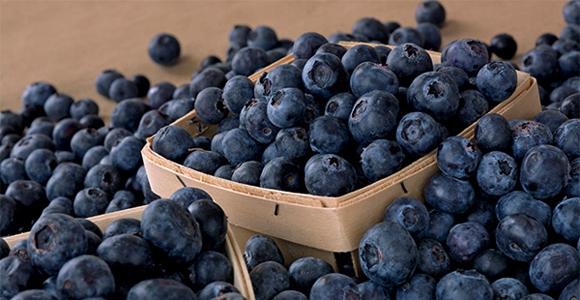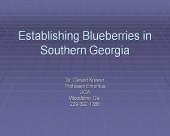This course that provides information on: types of blueberries grown in Georgia, Rabbiteye blueberry requirements, Southern highbush blueberry requirements, soil drainage and freeze protection considerations.
To access the lesson, click here.
Contact: Gerard Krewer at 229.392.1388

